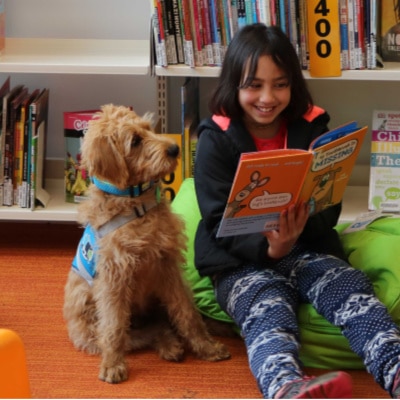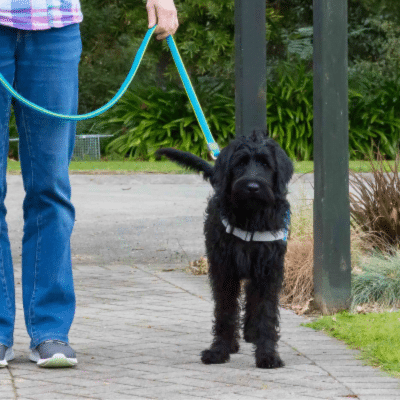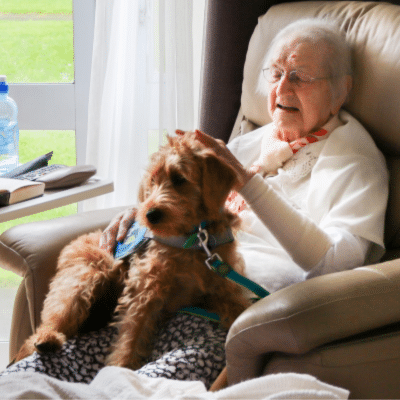Disability Support Therapy Dogs
These therapy dogs offer friendship, comfort and companionship to those living with a disability.
One in four New Zealanders are faced with a disability or multiple disabilities and around 11% are vulnerable young children.
Dogs don’t judge a person who may look or act differently. They are fully accepting of all types of people and they bring fun, playfulness and positive energy into any situation or home. Therapy dogs provide a welcome relief from a person or child’s condition through distraction and interaction.
Therapy dogs can help children and adults cope with physiotherapy and hospital procedures, as well as give them emotional support, encourage movement and provide hours of companionship on the bed for those with chronic illness or restricted movement.

Our Dogs
Over the past six years we trained 47 therapy dogs. Some of these dogs have been placed with owners with a disability and they have made a world of difference to them and their families.
Who Is Suitable?
support for children & adults
There is a range of common disabilities or conditions that a therapy dog can support:
- Autism Spectrum Disorder (in particular we focus on high-functioning autism with symptoms such as inability to relax or sleep, anxiety and withdrawn emotionally)
- Down syndrome
- Global developmental delay
- Cerebral palsy
- Physical disabilities
- Brain injuries
- Chronic pain syndromes
OTHER
Therapy Dog Roles
Reading Support Dog
Therapy Dog Role
Emotional Support Dog
Therapy Dog Role
Facility Therapy Dog
Therapy Dog Role




